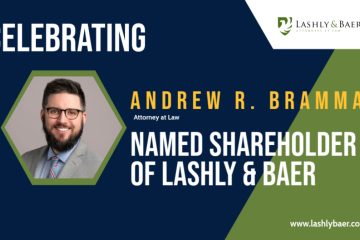Facing a “Credible Allegation of Fraud” in Missouri?
For Medicaid providers, these allegations can mean an immediate suspension of payments — often without a clear timeline for resolution. The process in Missouri is especially complex, involving strict deadlines, AHC appeals, and court intervention.
Our Health Care Advisory Team has deep experience guiding providers through these hurdles — protecting income streams and challenging flawed allegations.
For more information, please reach out to Richard Hill or your Lashly & Baer attorney with any questions.
Click here to read our latest article to learn more.
HealthcareLaw #Medicaid #MissouriLaw #FraudAllegations #HealthcareCompliance
Credible Allegations of Fraud in Missouri: the Intent Requirement and Procedural Hurdles
You open the mail, and find a letter from Missouri Medicaid Audit and Compliance stating that they are alleging a “credible allegation of fraud” against you or your business entity. What comes next?
As many providers that rely on income from Medicaid know, a State Medicaid Agency’s (“State Agency” or “State Agencies”) credible allegation of fraud is, in most cases, a death sentence for that income stream. Indeed, if the State Agency determines there is a credible allegation of fraud against a provider, then it is required by regulation to suspend all Medicaid payments to the provider. 42 C.F.R. § 455.23(a)(1). This suspension lasts until the State Agency investigates the matter and determines there is insufficient evidence of fraud, or until any legal proceedings related to the prosecution of fraud are complete. 42 C.F.R. § 455.23(c)(1). There is no time limit within which the investigation or legal proceedings must be completed, and as such, the State Agency can (with very little forewarning or legal process) stop all Medicaid payments to a provider indefinitely. Therefore, the determination of whether there is sufficient evidence to merit a finding of a “credible allegation of fraud” is an incredibly important aspect of any appeal process.
While the Federal regulations do not require that State Agencies provide an appeal process, luckily, in the State of Missouri, there is such a process. A provider may appeal to the Missouri Administrative Hearing Commission (“AHC”) to stay the payment suspension. RSMo. § 208.156. At the AHC, the provider is permitted to argue that the evidence provided by the State Agency does not merit a finding that there is a “credible allegation of fraud,” which is defined as follows:
A [“]credible allegation of fraud[”] may be an allegation, which has been verified by the State, from any source, including but not limited to the following:
- Fraud hotline tips verified by further evidence.
- Claims data mining.
- Patterns identified through provider audits, civil false claims cases, and law enforcement investigations. Allegations are considered to be credible when they have indicia of reliability and the State Medicaid agency has reviewed all allegations, facts, and evidence carefully and acts judiciously on a case-by-case basis.
42 C.F.R. § 455.2.
The regulations defining fraud, as well as the Missouri definition of fraud, include the requirement that there be an intentional deception, false representation, misrepresentation, or concealment of a material fact. RSMo. § 208.164; 42 C.F.R. § 455.2. However, because the word “fraud” is not included specifically within the definition of “credible allegation of fraud” outside of the term it defines, some State Agencies are arguing that there is no interaction between the defined terms “credible allegation of fraud” and “fraud,” and therefore no requirement for the State to prove intent.
This argument is meritless and has been found lacking by at least one commissioner at the AHC during a motion to stay a payment suspension. Providers accused of a “credible allegation of fraud” should still strongly consider providing evidence regarding a lack of intent to defraud the State Medicaid program.
However, that is not the end of the series of complications in Missouri related to the payment suspension. If a provider prevails at the AHC level, the next hurdle to implement the stay of the payment suspension is the requirement to obtain a letter from the Centers for Medicare & Medicaid Services (“CMS”) that it will not discontinue funding the entire Missouri Medicaid program if the payment suspension to a single provider is stayed. RSMo. § 208.156.9. Unfortunately, CMS no longer provides these letters, and as such, a provider is generally forced to go to a Missouri State Court (usually Cole County) to request a restraining order be issued to the AHC to disregard the CMS letter requirement.
The appeal of a finding of a credible allegation of fraud in Missouri is a complicated process and must be undertaken in an expedited fashion pursuant to the strict timetable requirements in Missouri statutes. If you have been the subject of a credible allegation of fraud, please do not hesitate to contact our Health Care Advisory Team.
For more information, please reach out to your Lashly & Baer attorney with any questions.
Prepared by:
Richard Hill
Phone: 314-436-8317
Email: rhill@lashlybaer.com
This summary and legal alert is an overview of the new developments in the health care industry. It is not intended to be, and should not be construed as, legal advice for a specific factual situation.

